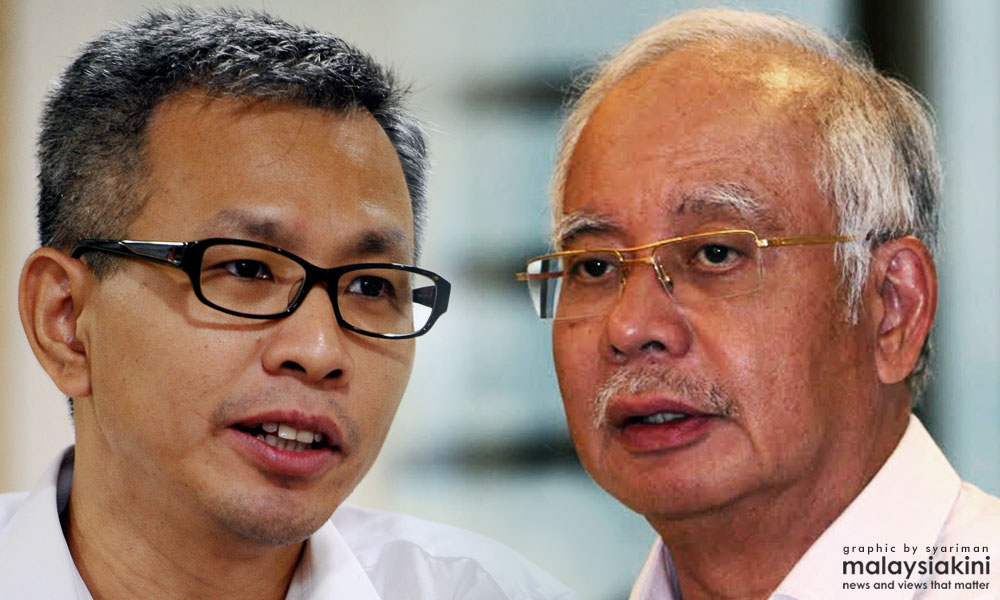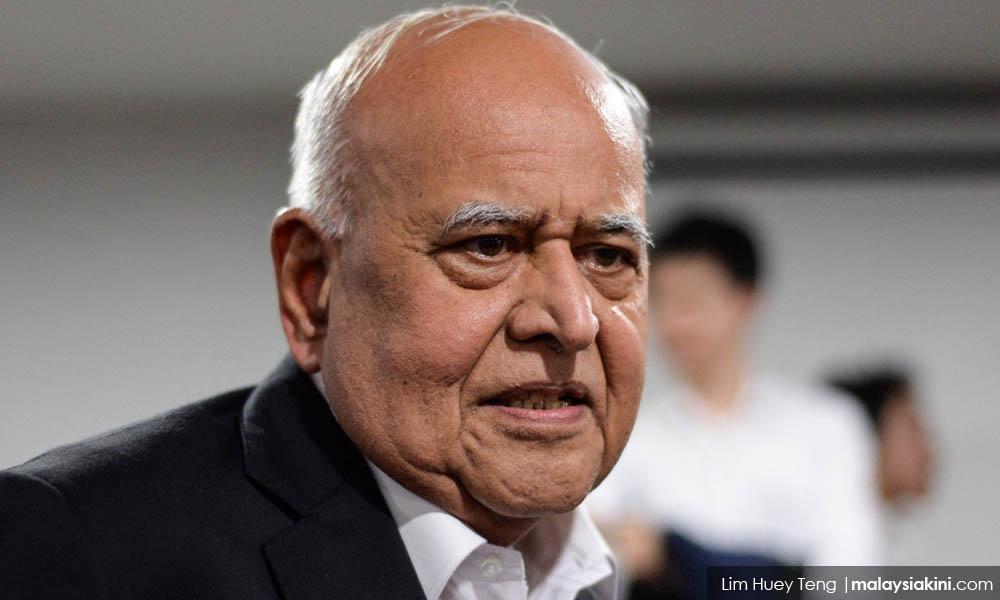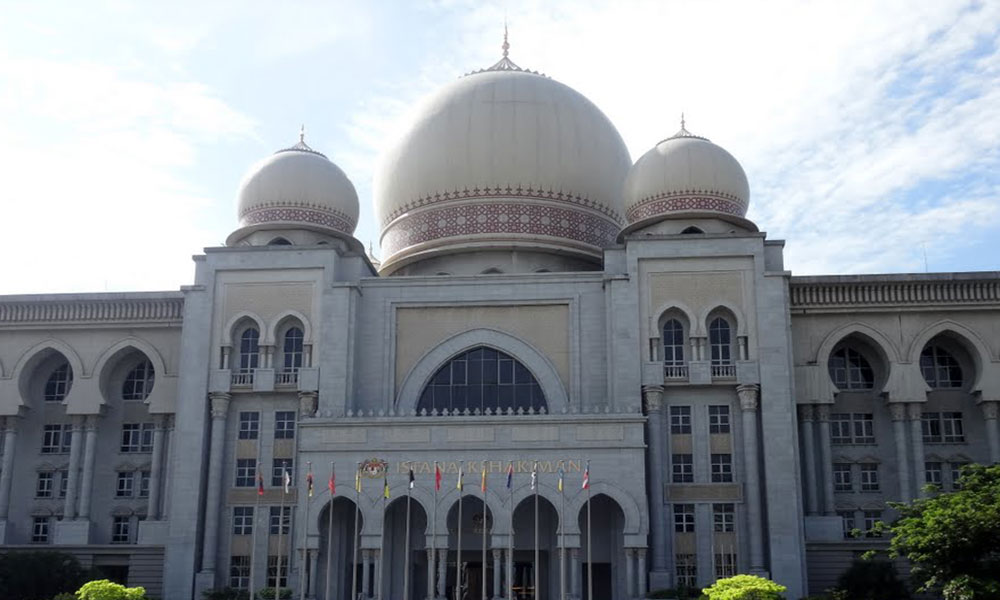Sri Ram: Wrong test applied in Najib vs Tony Pua case

The Court of Appeal has applied the wrong test in allowing an interim injunction sought by Prime Minister Najib Abdul Razak on Petaling Jaya Utara MP Tony Pua, a retired apex court judge said.
With due respect, Gopal Sri Ram said, the appellate court had erred in its decision as the settled practice of the court is to refuse an interlocutory injunction restraining further publication where the defendant either pleaded or stated at the injunction hearing that he intends to plead justification or fair comment.
"In this case, the defendant pleaded justification.Therefore the High Court fell into serious error in granting the injunction. Hence, the Court of Appeal should have corrected the error by setting aside the injunction.
"The Court of Appeal acted on the decision of the attorney-general in clearing the plaintiff (Najib) of any criminal offences. When the AG says that an accused or suspect has not committed an offence, he is applying the beyond reasonable doubt test.
"In other words, in his mind, he feels that the ingredients of cheating, criminal breach of trust and corruption against the suspect cannot be established in a court of law beyond a reasonable doubt.
"But a defamation case is a civil case. It is governed by a balance of probabilities only. This is a much lower test. Therefore, although the AG may not be able to prove his case against the suspect beyond a reasonable doubt, Pua, in a civil case of defamation, may be able to prove the same charge on a balance of probabilities. With respect, this point was missed by the appellate court," the former judge said.

Sri Ram was commenting on the controversial decision of the Court of Appeal in dismissing Pua's appeal to set aside the interim injunction imposed on him by the High Court, despite he pleading the defence of justification, qualified privilege and fair comment.
The full grounds of Justice Yaacob Md Sam's decision were made available and reported last Friday, where he emphasised that judicial notice can be taken based on the statements by AG and MACC that Najib did not commit any wrongdoing with regard to 1MDB.
Sri Ram said the practical strength of a defence of justification is never tested at the hearing of an interlocutory injunction.
The only question, he said, is whether Pua's constitutionally guaranteed right to free speech will be threatened by the grant of an injunction.
He also cited Lord Denning, in the 1969 case of Fraser vs Evans, who said:
"Insofar as the article will be defamatory of the plaintiff, it is clear he cannot get an injunction. The court will not restrain the publication of an article, even though it is defamatory, when the defendant says that he intends to justify it or to make fair comment on a matter of public interest. That has been established for many years, ever since Bonnard vs Perryman.
"The reason sometimes given is that the defences of justification and fair comment are for the jury, which is the constitutional tribunal, and not for a judge; but a better reason is the importance in the public interest that the truth should out. As the court said in that case ([1891–94] All ER Rep at p 968; [1891] 2 Ch at p 284):
“The right of free speech is one which it is for the public interest that individuals should possess, and, indeed, that they should exercise without impediment, so long as no wrongful act is done.”

Sri Ram explained, as can be seen from the passage, that this principle is more than 100 years old.
"Courts must follow established principles. If they bend them, then a dangerous precedent is set.
"The problem with the law is that it is flexible, but only within the limits of established rules. If judges bend the law beyond those limits, it has the nasty habit of snapping back to harm the very institution that exists to preserve and protect it," he warned.
Was COA right in giving judicial notice?
Najib filed the suit in April last year, in which he claimed that Pua defamed him in a Facebook Live session in claiming the tabling of amendments to the Syariah Courts (Criminal Jurisdiction) Act (Act 355) by PAS president Abdul Hadi Awang was a collusion between BN and PAS to divert attention from 1MDB.
Najib obtained an ex-parte injunction on the same day he filed the suit, and later got the interim injunction from the High Court, on Aug 4, which was granted by Justice Mohd Zaki Abdul Wahab.
Meanwhile, a former top judge, who did not want to be named, told Malaysiakini that it was sad the Court of Appeal had to deal with the matter concerning the PM and an MP.
Normally, he said, many are afraid of persons of high standing but in the best of courts, where the aim is to dispense justice, judges must never place one party above the other.
"In short, judges must take all parties as equal. Was this clear in this case?" he asked.
"Secondly, in order to declare any 'facts' as true and therefore judicially noticed... judges must give any party that challenges it the opportunity to be heard.
He said that in the 1995 case of Walker vs Haliburton Services, the court refused to take judicial notice of the intricate medical knowledge.
"Courts are to serve both the state administration and individuals. Once the people cannot trust the courts... where can they go or recede to?" he asked further.
Several politicians, including federal lawmakers Mohd Hanipa Maidin from Amanah and Ramkarpal Singh from DAP, have also questioned the judgment.
Pua had indicated that he would take the matter to the Federal Court.- Mkini
✍ Sumber Pautan : ☕ Malaysians Must Know the TRUTH
Kredit kepada pemilik laman asal dan sekira berminat untuk meneruskan bacaan sila klik link atau copy paste ke web server : http://ift.tt/2BQSVMK
(✿◠‿◠)✌ Mukah Pages : Pautan Viral Media Sensasi Tanpa Henti. Memuat-naik beraneka jenis artikel menarik setiap detik tanpa henti dari pelbagai sumber. Selamat membaca dan jangan lupa untuk 👍 Like & 💕 Share di media sosial anda!




















Post a Comment